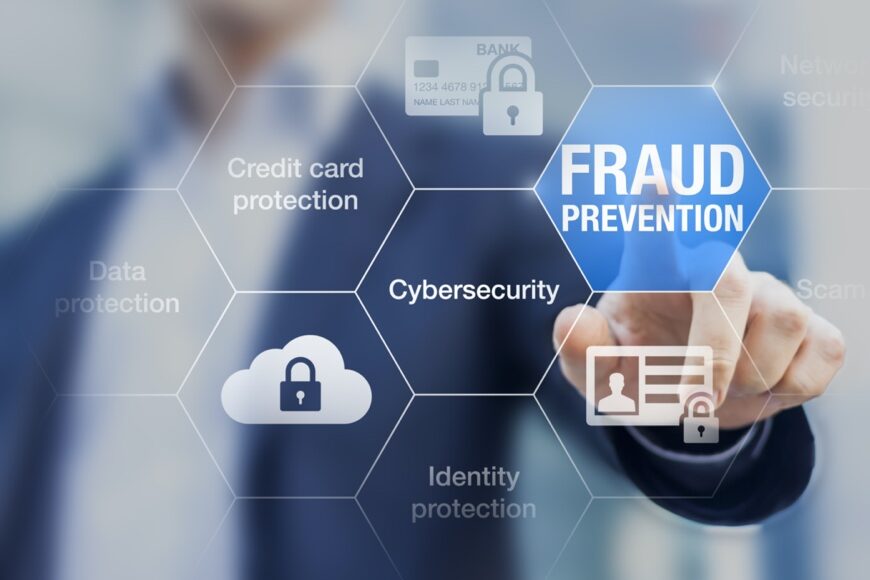So often, simple tasks can help avoid complex problems when it comes to fending off clandestine approaches made by cybercriminals on the internet. Cybercriminals continue to increase their illegal activities, hoping to catch potential victims off-guard.
At Bureaus FTC Report, we agree with that sentiment too, especially with the increased number of enquiries to our office every day.
Now, here are some ways you can educate yourself further about how to protect yourself, your business, your family, and your finances against online scammers.
What is a scam?
A scam is a financial crime carried out by organised criminals in a bid to steal your money. They come in various forms, but all involve tricking you into sharing vital personal or financial information.
Scammers might ask for your details, steal your data, or even convince you to hand over money directly.
Knowing how to spot a scam is key to protecting yourself. Look out for these warning signs:
- Offers of exceptionally high returns or savings
- Strangers asking for your help with money
- Unsolicited emails, social media messages or texts with links or attachments
- Pressure to act as quickly as possible
- Requests for payment in strange ways
- Being asked to set up new bank accounts or PayIDs
- Random approach looking for romance
How can you protect yourself from scams online?
1. If it sounds too good to be true, trust your gut
Trust your instincts when something feels off. Whether you’ve received a text message sharing an incredibly lucrative investment opportunity or an email promoting premium products at rock-bottom prices, if an offer sounds too good to be true, it usually is.
To prevent getting scammed, always take your time – don’t let anyone rush you into a financial decision that you could end up regretting.
2. Think before you click on a link
Text messages and email links are common tools for scammers to gather your personal details. They typically send alarming messages that urge immediate action, hoping you’ll click through before suspicions arise.
Don’t fall victim to such links. Instead, delete the message without opening it, do your due diligence and take proactive measures to filter out unwelcome communications. Blocking calls and texts from unknown numbers is a smart move.
3. Verify the identity of anyone who asks for money
Scammers can be extremely deceiving, making you believe you’re talking to someone you trust. For instance, they might use email addresses or social media accounts that impersonate real ones or even speak exactly like someone you know to appear legitimate.
Always be wary if someone you know asks for money via email or text. Get in touch with the individual directly via a trusted means of communication to verify their identity. Ignore unsolicited messages from people you don’t recognise.
4. Research businesses you’re buying from or investing in
Before you make a purchase online or invest in any sort of investment opportunity, do your homework.
That means performing due diligence such as reading customer reviews, verifying the company’s address and contact information, and checking to see if it is featured on any alert lists with the International Organisation of Securities Commission.
If you are based in Australia, you can also:
- Check the company’s registration on the ABN lookup website
- Review the company’s licences on ASIC Connect’s professional registers
- Look at whether the company has lodged a disclosure document on ASIC’s Offer Notice Board; and
- Make sure the company has not been listed on ACCC’s Scamwatch website
5. Only visit secure websites
To protect yourself from scams while shopping online, always ensure that a website is secure before making a purchase. Look for a URL starting with ‘https’ and a padlock symbol. It should also have a legitimate domain name and extension, like ‘.com.au’.
If a website address seems suspicious, exit it immediately and do not return to buy anything.
6. Don’t get pressured into urgent purchases
A lot of scams, like those on online marketplaces, use urgency to swindle unsuspecting users. Scammers create convincing stories to make you pay quickly, often without letting you view what you’re buying.
Always stay true to your instincts. It’s best not to pay if someone is rushing you, especially if the deal feels strange.
7. Never install unfamiliar software on your device
Do not download software if you have been instructed to do so by someone you don’t know or trust. Scammers often trick victims into installing malware on their computers or phones.
This technology can enable the criminal to gain remote control of a device and access sensitive information. Armed with your financial or personal details, this scammer can then blackmail you or steal funds directly from online accounts.
8. Never share personal information before verifying the recipient
Do not answer calls or respond to online communications claiming to be from your bank or a government body. Scammers often request personal information this way so that they can access your accounts or steal your identity.
It’s best not to give out information when you receive unexpected calls, texts, or emails. Instead, call the bank or organisation on a verified number.
9. Stay away from financial requests on social media
Be cautious on social media, as there is a rise in scammers pretending to be well-known celebrities endorsing various schemes, like cryptocurrency investments.
If you get a message from a stranger – no matter how famous – do not reply, share personal details or make any payments.
10. Be password smart
Log-in details are crucial when it comes to how to protect yourself from scams.
Firstly, keep your phone secure with a strong PIN or passcode that no one else could know, or use facial or fingerprint recognition.
Also, turn on multi-factor authentication for extra protection on all online accounts, including email. Always opt for longer account passwords, and never set the same password for multiple platforms.
If you suspect that someone might have accessed your account or stolen your identity, change your passwords and PINs as soon as possible.
Being targeted by an online scam?
Take action with expert support from our fraud investigation team now. Bureaus FTC Report is a private intelligence and investigations firm that helps victims of cybercrime to track down scammers and recover their losses.
We have been strictly vetted by the NSW Police Force in Australia and the State of Florida in the USA. Book a consultation now to bring the truth to light.






 Philippines National Police
Philippines National Police  Californian Association of Licensed Investigators
Californian Association of Licensed Investigators  NSW Police Force
NSW Police Force  Philippine Securities and Exchange Commission
Philippine Securities and Exchange Commission 